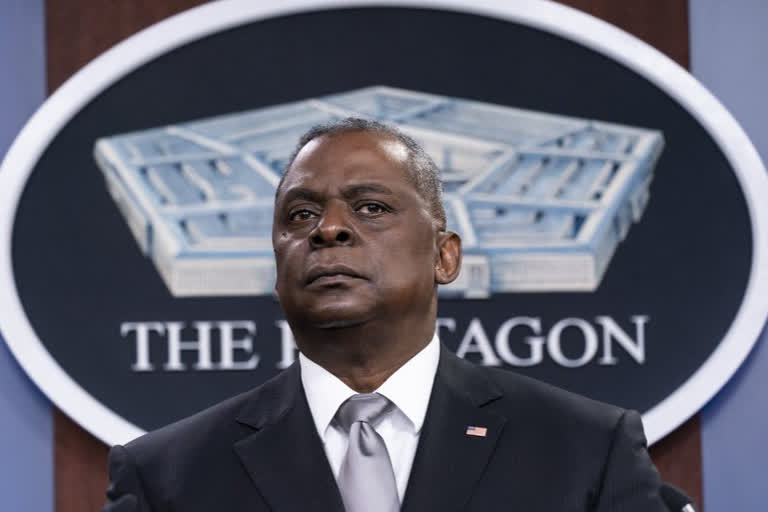Tel Aviv:US Defense Secretary Lloyd Austin on Sunday declared an enduring and ironclad American commitment to Israel, reinforcing support at a tense time in Israeli politics and amid questions about the Biden administration's efforts to revive nuclear negotiations with Israel's archenemy, Iran.
Austin's first talks in Israel since he became Pentagon chief in January comes as the United States seeks to leverage Middle East diplomatic progress made by the Trump administration, which brokered a deal normalising relations between Israel and several Arab states.
After meeting with Defense Minister Benny Gantz in Tel Aviv, Austin said he had reaffirmed our commitment to Israel is enduring and ironclad." Austin made no mention of Iran.
Gantz, in his own remarks while standing beside Austin, said his country views the United States as a full partner against threats, not the least, Iran. Neither official took questions from reporters.
The Tehran of today presents a strategic threat to international security, the entire Middle East and to the state of Israel, Gantz said in his prepared statement. We will work closely with our American allies to ensure that any new agreement with Iran will security the vital interests of the world and of the United States, prevent a dangerous arms race in our region and protect the state of Israel.
Yoel Guzansky, a senior fellow at the Institute for National Security Studies, a Tel Aviv think tank, said Austin's visit is important in part because it is the first by a member of President Joe Biden's Cabinet.
Also read:America on path of a new agenda
They want to show that they did come here with clean hands and they want to listen, Guzansky said.
They want to listen to Israel's worries and perhaps other partners' worries about the negotiation about Iran.
Austin is steeped in the finer points of Middle East defense and security issues. He served four years as head of US Central Command, capping a 41-year Army career that included commanding U.S. forces in Iraq.
Flying overnight from Washington, Austin arrived in Tel Aviv in the tense aftermath of the country's fourth inconclusive election in the past two years. Israeli President Reuven Rivlin last week gave embattled Prime Minister Benjamin Netanyahu the difficult task of trying to form a new government.
The key backdrop to Austin's visit is the Israeli government's concern about the Biden administration's attempt to work out an arrangement to reenter the Iran nuclear deal, which in Israel's view is fatally flawed.
Netanyahu has for years described Iran as an existential threat to his nation due to Iran's alleged pursuit of a nuclear weapon and its support for militant groups like Lebanon's Hezbollah.
Netanyahu, leading a state with its own secret nuclear weapons programme, has accused Iran of seeking nuclear weapons to use with its ballistic missiles. Iran has maintained its nuclear program is peaceful.
Netanyahu has also kept up his criticism of the Iran nuclear deal, which, if followed, strictly limits Tehran's ability to enrich and stockpile uranium, blocking it from being able to make a weapon.
